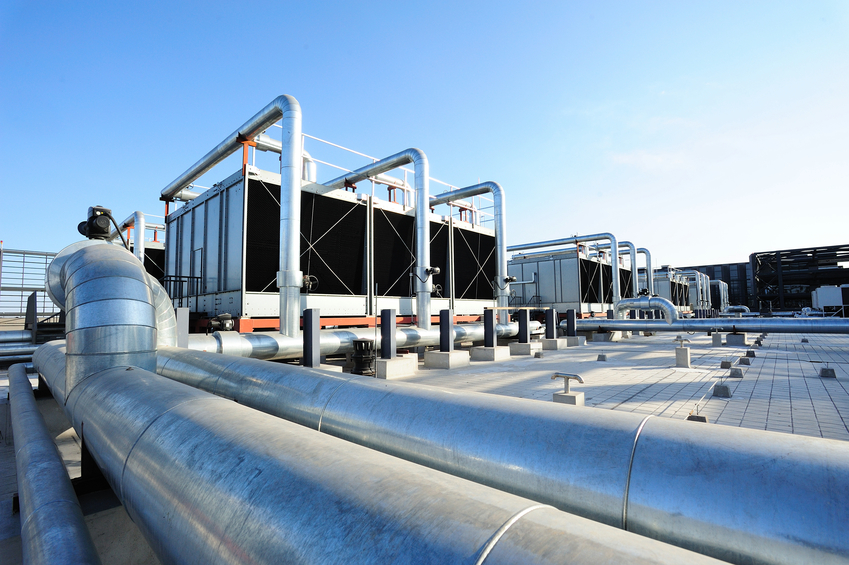Delaware Energy Efficiency and Ethics 24 PDH Discount Package 1
Home Energy Savings: A Practical Approach (M09-001)
Cooling Tower Key Components and How to Improve Water Efficiency (M01-018)
Water Efficiency Management Guide for Mechanical Systems (M02-055)
Advancing Sustainable Materials Management (C01-021)
A PE's Guide to Verifying Commercial Building Applications for ENERGY STAR® Certification (M03-053)
Advancing Systems and Technologies to Produce Cleaner Fuels (P03-003)
Engineering Ethics for Delaware Professional Engineers (DE2-001)

This online engineering PDH course provides basic information about small wind electric systems to help you decide if wind energy will work for you.
Wind is created by the unequal heating of the Earth's surface by the sun. Wind turbines convert the kinetic energy in wind into mechanical power that runs a generator to produce clean electricity.
Can I use wind energy to power my home? More people across the country are asking this question as they look for a hedge against increasing electricity rates and a way to harvest their local wind resources. Although wind turbines large enough to provide a significant portion of the electricity needed by the average U.S. home generally require 1 acre of property or more, approximately 19.3% of the U.S. population lives in rural areas and may own land parcels large enough to accommodate a wind energy system.
This 3 PDH online course is applicable to electrical and mechanical engineers and energy professionals who are interested in learning more about small wind electric systems.
This PE continuing education course is intended to provide you with the following specific knowledge and skills:
- Familiarizing with wind energy, terminology, and basic principles of wind turbines
- Understanding the different ways to make a home more energy efficient
- Understanding how and when small wind energy systems provide a practical and economical source of electricity
- Learning about the size of wind turbines required for specific applications
- Learning about the basic parts of a small wind electric system
- Knowing where to find certified small wind turbines, as well as installation and maintenance support
- Calculating how much energy a wind electric system will generate
- Gaining a general overview of hybrid wind energy systems
Upon successful completion of the quiz, print your Certificate of Completion instantly. (Note: if you are paying by check or money order, you will be able to print it after we receive your payment.) For your convenience, we will also email it to you. Please note that you can log in to your account at any time to access and print your Certificate of Completion.

This online engineering PDH course provides information on a wide variety of energy-related topics, ranging from simple weatherization, insulation, heating and cooling system improvements in homes, to installing and maintaining efficient water heaters, home appliances and solar panels.
Every year, a typical family in the United States spends around half of its home energy budget on heating and cooling. Unfortunately, many of those dollars are often wasted, because conditioned air escapes through leaky ceilings, walls and foundations, or flows through inadequately insulated attics, pipes, exterior walls and basements. In addition, many appliances, heating systems and air conditioners aren’t properly maintained, are old and inefficient, compared to models being sold today.
By properly maintaining your existing heating and cooling equipment (or replacing aging units with high-efficiency models), addressing weatherization and insulation issues at your house and getting into the habit of using energy efficiently all the time, you can save 10 to 30 percent (or more) on your utility bills every year. You will also help reduce pollution at utility plants that use fossil fuels to generate electricity.
This 9 PDH online course is applicable to electrical and mechanical engineers as well as energy specialists who are interested in learning more about home energy-saving considerations and the collection of systems that work together to achieve peak energy savings and to increase a home’s overall comfort.
This PE continuing education course is intended to provide you with the following specific knowledge and skills:
- Familiarizing with the major sources of air leaks and energy use in a typical home
- Learning about different sealing and insulating materials, their main characteristics and applications
- Understanding the energy saving considerations for heating and cooling systems
- Learning about a set of energy-related units, ratios and terminologies
- Learning about water heating systems and the different approaches to lowering water-heating costs
- Familiarizing with energy-efficient tips and practices for major home appliances
- Familiarizing with the building blocks of solar PV systems
- Gaining a general overview of contracts, installation, maintenance and monitoring of solar energy systems
Upon successful completion of the quiz, print your Certificate of Completion instantly. (Note: if you are paying by check or money order, you will be able to print it after we receive your payment.) For your convenience, we will also email it to you. Please note that you can log in to your account at any time to access and print your Certificate of Completion.

This online engineering PDH course provides a basic understanding of cooling towers, describes their key components and provides recommendations on how to improve the water efficiency.
Cooling towers are an integral component of many refrigeration systems, providing comfort or process cooling across a broad range of applications. They are the point in the system where heat is dissipated to the atmosphere through the evaporative process, and are common in industries such as oil refining, chemical processing, power plants, steel mills, and many different manufacturing processes where process cooling is required.
This 1 PDH online course is intended for mechanical and environmental engineers as well as others interested in learning more about cooling towers and how to improve their water efficiency.
This PE continuing education course is intended to provide you with the following specific knowledge and skills:
- Understanding the basic cooling tower terms
- Learning the different types of cooling towers
- Learning the system calculations
- Understanding the factors that limit cycles of concentration
- Knowing the system concerns
- Familiarizing with the treatment options
Upon successful completion of the quiz, print your Certificate of Completion instantly. (Note: if you are paying by check or money order, you will be able to print it after we receive your payment.) For your convenience, we will also email it to you. Please note that you can log in to your account at any time to access and print your Certificate of Completion.

This online engineering PDH course presents guidelines on how to reduce mechanical system water use in residential buildings. Mechanical systems are frequently utilized to provide heating and cooling for residential properties. They typically fall into two categories: centralized and decentralized systems.
Centralized mechanical systems provide heating and cooling from a central location, such as a mechanical room or utility penthouse. These systems are more common in mid- and high-rise multifamily properties and can include cooling towers, boilers, and steam systems, each of which uses water as the heat transfer medium. As a result, the use of water for building heating and cooling can be significant and using sound management practices is a good opportunity for water savings.
Decentralized mechanical systems treat each unit of a multifamily property as its own space, as if each unit were a stand-alone single-family residence. These systems do not typically use process water, so they are not the focus of this water efficiency management guide.
This 2 PDH online course is intended for mechanical, environmental and civil engineers, as well as other technical personnel who are interested in learning more about reducing water use in mechanical systems.
This PE continuing education course is intended to provide you with the following specific knowledge and skills:
- Understanding the basics principles behind single-pass cooling, cooling towers and boiler/steam systems
- Understanding mechanical system water use
- Familiarizing with the maintenance and best management practices
- Knowing the mechanical systems retrofit and replacement options
- Familiarizing with the water savings calculations and assumptions
Upon successful completion of the quiz, print your Certificate of Completion instantly. (Note: if you are paying by check or money order, you will be able to print it after we receive your payment.) For your convenience, we will also email it to you. Please note that you can log in to your account at any time to access and print your Certificate of Completion.

This online engineering PDH course presents the facts and statistics about the generation and disposition of municipal solid waste (MSW) over time in the United States. It examines the disposing of waste in landfills, recycling, composting, and combustion with energy recovery.
Approximately 262 million tons of MSW was generated in the United States in 2015. Understanding how waste is generated and disposed of is important for managing scarce materials.
This report analyzes MSW trends in generation and management, materials and products, and economic indicators affecting MSW. It also includes a section on the generation of construction and demolition (C&D) debris, which is not a part of MSW, but comprises a significant portion of the non-hazardous solid waste stream.
This 1 PDH online course is applicable to civil, environmental and sustainability engineers and other technical personnel who are interested in gaining a basic understanding of waste management on the individual and household level.
This PE continuing education course is intended to provide you with the following specific knowledge and skills:
- Knowing where MSW comes from and how it is disposed of
- Understanding how to manage materials in order to maximize economic efficiency
- Learning when recycling, composting, and combusting with energy recovery should be used
- Familiarizing with the Sustainable Materials Management (SMM) process
Upon successful completion of the quiz, print your Certificate of Completion instantly. (Note: if you are paying by check or money order, you will be able to print it after we receive your payment.) For your convenience, we will also email it to you. Please note that you can log in to your account at any time to access and print your Certificate of Completion.

This online engineering PDH course provides Licensed Professionals (LPs) with step-by-step instructions on how to correctly verify the reported data of applications and assess indoor environmental quality of U.S. buildings.
Energy use in commercial buildings accounts for nearly 20% of U.S. greenhouse gas emissions at a cost of more than $100 billion per year. Through ENERGY STAR®, the United States Environmental Protection Agency (EPA) works with owners and managers of our nation’s commercial buildings to help them strategically manage their facilities’ energy performance, cut energy use, lower utility bills, and reduce greenhouse gas emissions.
More than a dozen types of commercial buildings can earn EPA’s mark of superior energy efficiency – the ENERGY STAR, which is recognized by 90% of American consumers. Commercial buildings that earn the ENERGY STAR must perform in the top 25% of buildings nationwide compared to similar buildings, and their performance must be verified by a licensed professional.
The role of the LP is to verify that all energy use is accounted for accurately, the building characteristics have been properly reported, and indoor environmental quality has not been compromised in pursuit of energy conservation. By verifying the completeness and correctness of the application submitted to the EPA, the LP helps to ensure the integrity of the ENERGY STAR certification.
This 3 PDH online course is applicable to professional engineers who are interested in learning about the verification process of commercial building applications for the ENERGY STAR® certification.
This PE continuing education course is intended to provide you with the following specific knowledge and skills:
- Gaining an overview of energy use in commercial buildings in the U.S. as well as EPA’s mark of superior energy efficiency
- Familiarizing with the eligibility criteria for individuals verifying the applications for ENERGY STAR
- Learning about the different stages of the ENERGY STAR application process
- Understanding the detailed process by which the LP should verify the accuracy of each element on the application
M03-053 - APPENDIX A - INDOOR ENVIRONMENTAL QUALITY MEASUREMENT FORM FOR ENERGY STAR (1.2 MB)
Upon successful completion of the quiz, print your Certificate of Completion instantly. (Note: if you are paying by check or money order, you will be able to print it after we receive your payment.) For your convenience, we will also email it to you. Please note that you can log in to your account at any time to access and print your Certificate of Completion.

This online engineering PDH course provides information on advancements made in systems and technologies related to oil and natural gas development to produce cleaner fuels. It pays special attention to advancements aimed at reducing the environmental impact associated with the production of oil and natural gas. It also discusses the safety conditions for those involved in the development process.
Fossil fuel resources account for 82% of total U.S. primary energy use because they are abundant, have a relatively low cost of production, and have a high energy density—enabling easy transport and storage. The infrastructure built over decades to supply fossil fuels is the world’s largest enterprise with the largest market capitalization. Of fossil fuels, oil and natural gas make up 63% of energy usage. Across the energy economy, the source and mix of fuels used across these sectors is changing, particularly the rapid increase in natural gas production from unconventional resources for electricity generation and the rapid increase in domestic production of shale oil. The United States will, for the foreseeable future, continue to rely heavily upon oil and natural gas to support its economy, national security, and energy security.
This 3 PDH online course is applicable to petroleum, chemical, mechanical and sustainability engineers and other technical personnel who are interested in learning more about the trends in advancing oil and gas development systems and technologies.
This PE continuing education course is intended to provide you with the following specific knowledge and skills:
- Understanding the Oil and Gas industry in the Energy Economy of the United States
- Familiarizing with the latest technological advancements in Oil and Gas
- Learning about the emerging research opportunities and the four themes to address R&D challenges
- Learning the about the Oil and Gas challenges through specific technology assessments
- Understanding the risks associated with the various aspects of oil and natural gas development
- Learning from past oil and natural gas development mistakes and disasters to ensure they are not repeated
Upon successful completion of the quiz, print your Certificate of Completion instantly. (Note: if you are paying by check or money order, you will be able to print it after we receive your payment.) For your convenience, we will also email it to you. Please note that you can log in to your account at any time to access and print your Certificate of Completion.

This online engineering PDH course presents the laws of professional responsibility governing the practice of engineering in the State of Delaware, as well as the Delaware engineering code of ethics as follows:
- Delaware Professional Engineers' Act: Title 24, Chapter 28
- Delaware Engineering Code of Ethics
Engineering ethics is (1) the study of moral issues and decisions confronting individuals and organizations involved in engineering and (2) the study of related questions about moral conduct, character, ideals and relationships of peoples and organizations involved in technological development (Martin and Schinzinger, Ethics in Engineering).
This 2 PDH online course is applicable to Professional Engineers licensed in the State of Delaware and who are required to demonstrate continuing professional competency in engineering ethics as a condition of their license renewal.
Every licensee is required to obtain the equivalent of 12 PDHs per year (or 24 PDHs obtained anytime during the renewal period). Of the 24 PDHs earned during the biennial renewal period: no less than 2 PDH and no more than 6 PDH shall be related to professional ethics, and no more than 9 PDH shall be related to business or project management. The balance shall be related to the licensee’s area of technical practice.
This PE continuing education course is intended to provide you with the following specific knowledge and skills:
- Understanding the statutory laws regulating the practice of engineering in the State of Delaware and their application to professional engineers
- Understanding the Delaware Engineering Code of Ethics promulgated by the Council of the DAPE to safeguard life, health and property and promote public welfare
- Learning about the engineering rules of professional responsibility and ethical conduct as well as understanding the basic obligations of the engineer
- Understanding the Delaware disciplinary process and the range of violations and corresponding penalties imposed by DAPE
Upon successful completion of the quiz, print your Certificate of Completion instantly. (Note: if you are paying by check or money order, you will be able to print it after we receive your payment.) For your convenience, we will also email it to you. Please note that you can log in to your account at any time to access and print your Certificate of Completion.